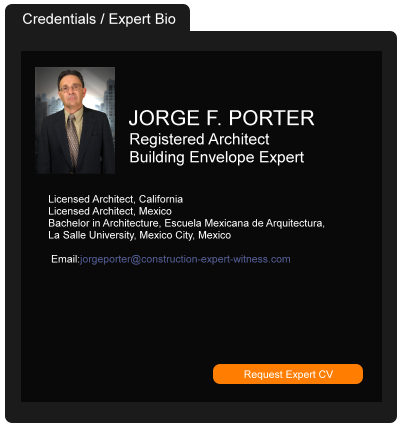Connecticut Builders Right To Repair Current Law Summary:
Current Law Summary: Case law precedent
Building Expert Contractors Licensing
Guidelines Fairfield Connecticut
License required for electrical and plumbing trades. No state license for general contracting, however, must register with the State.
Association Directory
Local # 0780
433 Meadow St
Fairfield, CT 06824
http://www.buildfairfieldcounty.com
Fairfield Connecticut Building Expert 10/ 10
Builders Association of Eastern Connecticut
Local # 0740
20 Hartford Rd Suite 18
Salem, CT 06420
http://www.baec.net
Fairfield Connecticut Building Expert 10/ 10
Home Builders Association of New Haven Co
Local # 0720
2189 Silas Deane Highway
Rocky Hill, CT 06067
http://www.hbanewhaven.com
Fairfield Connecticut Building Expert 10/ 10
Home Builders Association of Hartford Cty Inc
Local # 0755
2189 Silas Deane Hwy
Rocky Hill, CT 06067
http://www.hbahartford.com
Fairfield Connecticut Building Expert 10/ 10
Home Builders Association of NW Connecticut
Local # 0710
110 Brook St
Torrington, CT 06790
http://www.hbanwct.org
Fairfield Connecticut Building Expert 10/ 10
Home Builders Association of Connecticut (State)
Local # 0700
3 Regency Dr Ste 204
Bloomfield, CT 06002
http://www.hbact.org
Fairfield Connecticut Building Expert 10/ 10
Building Expert News and Information
For Fairfield Connecticut
Construction Demand Unsteady, Gains in Some Regions
Singapore Unveils Changes to Make Public Housing More Affordable
How the Parking Garage Conquered the City
Home Prices Expected to Increase All Over the U.S.
How to Challenge a Project Labor Agreement
Courts Will Not Rewrite Your Post-Loss Property Insurance Obligations
Communications between Counsel and PR Firm Hired by Counsel Held Discoverable
Insurer Not Entitled to Summary Judgment Based Upon Vandalism Exclusion
An Additional Insured’s Reasonable Expectations may be Different from the Named Insured’s and Must be Considered to Determine whether the Additional Insured is Entitled to Defense from the Insurer of a Commercial Excess & Umbrella Liability Policy
Suzanne Pollack Elected to Lawyers Club of San Diego 2021 Board of Directors
Washington First State to Require Electric Heat Pumps
Harmon Towers to Be Demolished without Being Finished
Do You Have the Receipt? Pennsylvania Court Finds Insufficient Evidence That Defendant Sold the Product
Get to Know BJ Siegel: Former Apple Executive and Co-Founder of Juno
Duty to Defend For Accident Exists, But Not Duty to Indeminfy
Three Recent Cases Strike Down Liquidated Damages Clauses In Settlement Agreements…A Trend Or An Aberration?
New York Establishes a Registration Requirement for Contractors and Subcontractors Performing Public Works and Covered Private Projects
Wonder How 2021 May Differ From 2020? Federal Data Privacy May Be Enacted - Be Prepared
Mondaq’s 2023 Construction Comparative Guide
Affirmed: Insureds Bear the Burden of Allocating Covered Versus Uncovered Losses
GIS and BIM Integration Will Transform Infrastructure Design and Construction
Supply Chain Delay Recommendations
Flag on the Play! Expired Contractor’s License!
Feds OK $9B Houston Highway Project After Two-Year Pause
New Jersey Imposes New Apprenticeship Training Requirements
Purely “Compensatory” Debts Owed by Attorneys to Clients (Which Are Not Disciplinary or Punitive Fees Imposed by the State Bar) Are Dischargeable In Bankruptcy
Commercial Real Estate Brokerages in an Uncertain Russian Market
ASCE Report Calls for Sweeping Changes to Texas Grid Infrastructure
Fla. Researchers Probe 'Mother of All Sinkholes'
Nomos LLP Partner Garret Murai Recognized by Best Lawyers®
Bright-Line Changes: Prompt Payment Act Trends
Intricacies of Business Interruption Claim Considered
Insurer's In-House Counsel's Involvement in Coverage Decision Opens Door to Discovery
Whose Employee is it Anyway?: Federal Court Finds No Coverage for Injured Subcontractor's Claim Based on Modified Employer's Liability Exclusion
Steps to Defending against Construction Defect Lawsuits
Texas Jury Finds Presence of SARS-CoV-2 Virus Causes “Physical Loss or Damage” to Property, Awards Over $48 Million to Baylor College of Medicine
EEOC Suit Alleges Site Managers Bullied Black Workers on NY Project
Breach of an Oral Contract and Unjust Enrichment and Implied Covenant of Good Faith and Fair Dealing
No Bad Faith in Insurer's Denial of Collapse Claim
ASCE Statement on Hurricane Milton and Environmental Threats
The Privette Doctrine and Its Exceptions: Court of Appeal Grapples With the Easy and Not So Easy
Not So Unambiguous: California Court of Appeal Finds Coverage for Additional Insured
Home Prices in 20 U.S. Cities Rose at a Faster Pace in October
Could You Be More Specific . . . About My Excess AI Coverage?
Arizona Court of Appeals Upholds Judgment on behalf of Homeowners against Del Webb Communities for Homes Riddled with Construction Defects
Quick Note: Insurer Must Comply with Florida’s Claims Administration Act
Payment Bond Claim Notice Requires More than Mailing
Elizabeth Lofts Condo Owners Settle with Plumbing Supplier
A Contractual Liability Exclusion Doesn't Preclude Insurer's Duty to Indemnify
Where-Forum Art Thou? Is the Chosen Forum Akin to No Forum at All?


































































